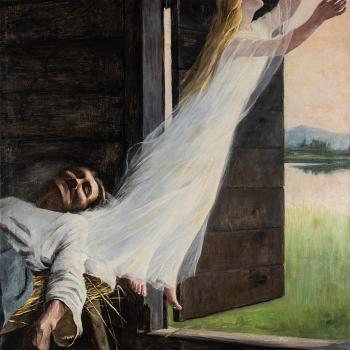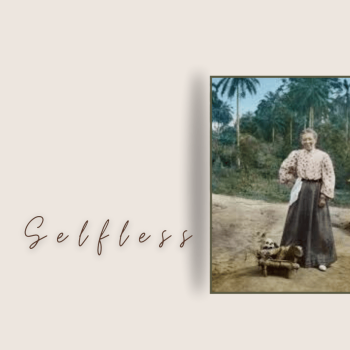Full disclosure: Alisa Harris and I are good friends. She and her husband, David Sessions, with whom I edit Patrolmag.com, have spent time with my wife and me, watching movies and eating meals in each other's apartments, going to brunch after church, and walking around Manhattan at night. Since my wife and I moved to Boston, Alisa and David know they have a standing invitation to visit us anytime, and they are high on our list of friends to spend time with when we're back in New York.
I say this not just to admit a bias when writing about Alisa's Raised Right, but to express how shocking it has been to read the book and learn about her former self. In a lot of ways, Alisa's experience mirrors my own, and, I suspect, the broad appeal of the book is that it will reveal that her story greatly resembles the stories of countless young evangelicals and post-evangelicals who were raised amidst the combat of the culture wars. This commiseration, this grand understanding that we are not alone, is reason enough to love her book.
But more than that, the process of learning and affirming that the reader experiences from Alisa's story is exhilarating. She doesn't preach; she doesn't even really directly teach; but she tells stories, and her stories carry great didactic weight.
One surprising theme that runs throughout her accounts of life on the cultural battlefield is how combative she was as a youth. Should you ever have the pleasure to get to know Alisa, you too will find this hard to believe. And yet, she and I both were taught as young spiritual warriors, that, as she writes, "The essence of cultural engagement is confrontation—badgering people into a corner to defend their beliefs, even and especially if it makes them uncomfortable."
She recounts an experience that could not be more foreign from my urban upbringing—a county fair goat costume contest—that she attempted to use as an opportunity to create political controversy by dressing herself as Hillary Clinton, and her goat as Bill. The costume didn't go over so well with the audience, but as a young culture warrior, she felt she had done her part.
Then, she tells of a youth pastor who taught his "foolproof apologetics tactic," which allowed the user to argue a potential convert into submission. Aware now of the myriad reasons this approach was wrong, not just because it's mean but also ineffective, Alisa's humor is tinged with a sadness about her misled youth—a feeling I know all too well.
I spent time praying around the flagpole in front of my Catholic high school, hoping to grab the attention of those who I knew were Christian in name only. I corrected people's language, not for grammar but for profanity. On more than one occasion I publicly destroyed CDs and tapes that contained explicit lyrics. In short, I, too, lived for confrontation. If I could get someone to argue with me, I thought, I could find a way to preach the gospel.
What a misguided belief. What a harmful practice.
It is heartening to know that I wasn't alone in this kind of training, and yet disheartening to know that all the way across the country, and probably everywhere in between, this beat-them-into-submission style of evangelism was, and probably still is, being taught.
Alisa, as I alluded to before, could not be mistaken for a person who has this in her past. Today, she is humble and sweet and, though I've heard and read her argue to great effect, there's not a mean bone in her body.
But, I worry about myself. I worry often that the combative stance I was taught—and, let's face it, some of it is just in my fighting Irish genes—has stayed with me today. Shortly after college, I returned to campus to hear a speaker, a former radical Muslim Palestinian turned Christian, give his testimony. The audience expected to meet a repentant, peace-loving man, but what we found was a man who redirected the hatred he grew up feeling toward Israelis, back at his own people. In short, he'd experienced an ideological conversion, but his heart was still the same.
I think about him often and hope I'm not like him. I don't ever worry about Alisa, though. Most readers won't have the chance to meet her, but take my word for it, the militant little girl who used a goat costume contest as an opportunity for political controversy has been completely replaced by the person who can look back at that time with a bit of humor and a tinge of regret, but, most of all, with the ability to see that her story provides an opportunity for commiseration, as well as a chance to realize valuable lessons.
For more conversation on Raised Right—and to read an excerpt and author interview—visit the Patheos Book Club.
9/6/2011 4:00:00 AM





